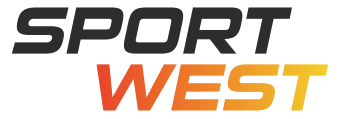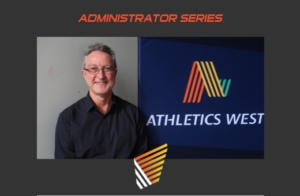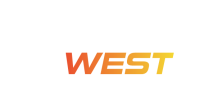Sports have at times treated each other like competitors but a new era of collaboration and cooperation has dawned in WA sport.
At least that is what chief executive officer of Athletics West Vince Del Prete thinks.
Del Prete has experienced the full spectrum of community sport during his 30 years of involvement.
From the parent to the volunteer coach and administrator to working with the Department of Sport and Recreation to running state sporting organisations. He has seen the sport industry from different angles and seen it change as society changes.
“For me the sport industry should be a hub where we are actually all working together for the betterment of the communities,” Del Prete said.
“I know certainly as a CEO that I can get on the blower and talk to any other sport and go ‘hey what are you doing in that space’ or they will ring me and go ‘hey what are you doing this in space.’
“It is more about sharing ideas and how do we make our communities better.”
Del Prete said because of COVID-19 restrictions in 2020, sports recognised a unique opportunity to come together to benefit the WA community.
“A couple of groups came together and working with local governments helped the winter codes give participants enough of a season even though it potentially meant encroaching into the summer programs. But the focus was on how we get people active and we were thinking about them as people, not ‘hey it’s my sport too bad if your season is short.’
“I think that is where SportWest has quite a pivotal role to keep harnessing that collaboration between all sports and that includes recreation groups.”
Del Prete said all sports also had a responsibility around building communities and providing an opportunity for people to participate.
“Sport has a responsibility around physical activity, and also around mental health and wellbeing, and to me all sports would have those outcomes as one of the reasons why we actually do it. The more we work in collaboration, the more we will achieve better outcomes for the community.
“I think the days of we are this sport, we don’t talk to them, or it’s this sport we don’t talk to them or it’s this sport we don’t talk to them’, I think are gone.”
Del Prete said he was comfortable that kids will try different sports.
“If we can show the benefits of doing athletics, there is a fair chance that even if kids try other sports, they will find their way back to the sport as a senior or a master.
“We know working in collaboration with other sports benefits both organisations, and more importantly creates new opportunities for children and young people wanting to progress in a particular sport that may not have been there before.”
Del Prete said he had noticed a change in what the community want from sport.
“People want to participate. They want to do short, sharp activities aligned to their busy lifestyles. People that are more health aware are opting for pay-as-you-go participation options, over the structured sport models of 15 years ago,” he said.
“The driver of change in society is people wanting more say over what sport or activity they want to do and how they want to go about doing it.
“We’ve got to move as a traditional sport on how we do that and that is the biggest challenge we have – how we support our clubs and centres to make that shift?
“We still want to retain that traditional element but how do we pick up on that more participation and recreation component that people are really asking for.”
Del Prete said the change in attitude around participation in sport was reflected in volunteering.
“I think it was almost inherent that people would volunteer without even thinking about it,” he said.
“Nowadays there are so many different activities and sports available for kids and adults to get involved with meaning people, especially families, can have many commitments and we hear the term ‘time poor’ a lot.
“That is putting more pressure on clubs and centres because it means they are not necessarily getting the volunteers they need which impacts on programs they are running.
“We used to have the really traditional summer, you do that, and winter you do that, these days it doesn’t happen that way.”
Del Prete said it was vital that state sporting organisations upskilled, trained and supported volunteers.
“Our role is to support our member clubs and centres by providing them the resources, tools and education they need,” he said.
“Working with our national bodies, we help our members by marketing and promoting the sport in Western Australia as much as we can.
“Our job as the peak organisation is to prepare our volunteers within our clubs and centres to welcome new participants coming into the sport and help them provide a great sport experience so they want to stay.”
Del Prete said Athletics West, established in July last year following the merge of Little Athletics WA and Athletics WA, had embarked on developing its latest strategic plan.
The latest plan will guide the sport over the next two to three years, but Del Prete said success would take ongoing strong engagement with its members to ensure it was on the right track.
“I keep saying, the members have ownership of the sport, the peak body doesn’t own the sport, the members do, the mums and dads who turn up to make the sport happen week-after-week.
“They are the ones that are in the sport and we’ve got to make sure we understand their needs, provide the right support and this includes having an appreciation of their many commitments and busy lifestyles,” Del Prete said.
“We will continue to work with our clubs and centres as part of our engagement strategy to gain from them an understanding of what is it that they need and what other tools they need from us.
“We don’t want to be going down a particularly track when that’s not what they are after.”
By. Steve Glover






